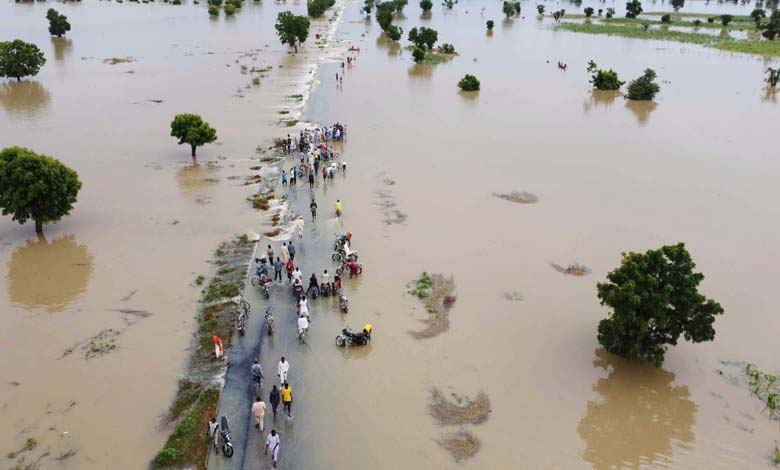Worsening Humanitarian Crisis in Nigeria Due to Ongoing Floods

Massive floods have been hitting central Nigeria for more than a month, displacing many people and raising fears of a humanitarian disaster, local authorities told Agence France-Presse.
-
Devastating Floods in Bosnia Claim the Lives of 14 People
-
13 dead and dozens injured in violent floods in Afghanistan
Torrential rains caused the overflow of the country’s two largest rivers, flooding vast areas around the confluence of the Niger and Benue rivers in central Nigeria.
Omar Mahmoud, head of disaster management at the Red Cross in Kogi, said that there were “more than 60,000 displaced people.”
He added that “the situation is very severe today because the Niger River has overflowed,” noting that at least 60,000 hectares of land had been destroyed.
-
Tragedy in Iran: 13 People, Including Children, Lost Due to Floods in the South of the Country
-
Due to the floods… 192 people perish in Nepal
Kingsley Femi Fanwo, the state’s information commissioner, called on national authorities to provide assistance, pointing out that the displaced persons camps were “overcrowded.”
He said, “We cannot cope with the rising water levels.”
He also gave a much higher estimate of the number of displaced people, stating that more than a million people live in the affected areas.
The large-scale flooding began about a month ago, and no deaths have been reported so far.
The floods have hit densely populated areas, including parts of the Lokoja state.
-
Thailand Executes 125 Crocodiles Due to Floods
-
Czech President Intervenes to Repair Infrastructure After Floods
Fanwo said one of the hardest-hit regions was Ibaji, where more than three-quarters of the land was submerged.
Flooding often occurs in Nigeria during the rainy season, from May to November, but there are fears that the damage in Kogi could exceed that of 2022, when Nigeria experienced its worst flooding in a decade, which killed more than 500 people and displaced 1.4 million.
Fanwo added, “There are growing concerns that these could be the worst floods in the state’s history, as water levels continue to rise every day.”
For her part, Sandra Musa from the Emergency Management Agency (SEMA) warned that the floods could lead to food shortages and a cholera outbreak, urging residents to evacuate.












